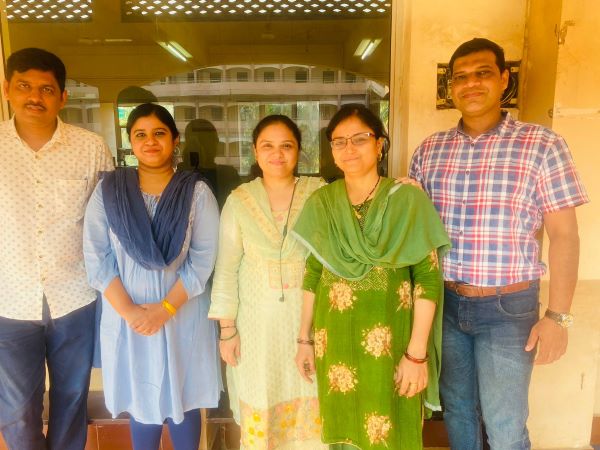The effectiveness of the suicide tendency detecting scanner would be known once its trial was completed

Team News Riveting
Raipur, November 29
A group of engineering faculties in Chhattisgarh’s Durg district has developed a device that can help diagnose suicidal tendencies in people by mapping emotions and facial expressions with artificial intelligence (AI).
The pen-shaped device, ‘Suicide Tendency Detecting Scanner’, has been designed by the team of seven computer science faculties of a Bhilai-based private engineering college.
Team leader Shaziya Islam said rising incidents of suicide, particularly among young people, prompted her to take up the project in 2019. According to the National Crime Records Bureau (NCRB), 7,828 people in Chhattisgarh died by suicide at a rate of 31.8 per cent in 2021. The state accounts for 4.8 per cent of suicides in the country.
Shaziya shared the idea with other members — Ajay Kushwaha, Minu Chaudhary, Tripti Sharma, Neelabh Sao, and Anisha Soni — who came up with such a device in three years.
According to Shaziya, they received a patent from the Indian government earlier this year. The device, having a camera at the tip, works on an AI system, in which millions of facial expressions and speech modalities were fed through special programming. It uses machine learning algorithms to compare a live-captured facial expression and speech to analyse one’s emotional and mental status, she explained.
After analysing the facial expressions, behaviours, and speech modalities, it creates a graph that can be used to assess the person’s mental status and can refer him or her to a doctor or therapy. “The device can also analyse the written content by identifying positive and negative words, which means that by scanning any person’s social media posts, his or her emotional status can be analysed,” she said.
The device will be trialed in schools, colleges, hospitals, police, and offices. Following the successful trial, the group plans to go for a commercial launch and realise the make-in-India concept. Shaziya said a private firm was interested in its manufacturing. The team will explore whether to launch a start-up or share the technology.
Dr Ajay Kushwaha, Professors Minu Chaudhary, Tripti Sharma, Neelabh Sao and Anisha Soni were other team members.
Senior Psychiatrist of Durg Dr Pramod Gupta said the effectiveness of the suicide tendency detecting scanner would be known once its trial was completed.
“As of now we don’t have such equipment and if it works, it will be quite useful. Presently we use a psychometric assessment tool under which we analyse the mental status of a person through conversation with a person,” he added.



